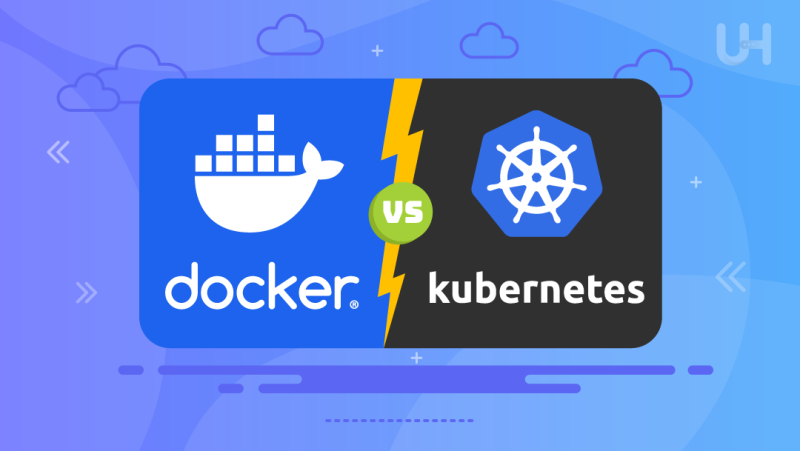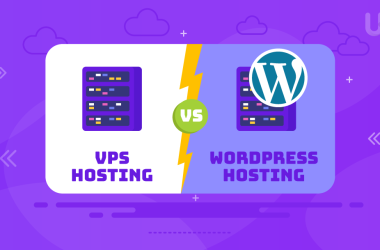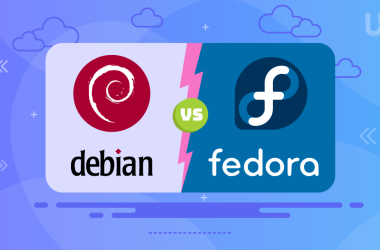Docker vs Kubernetes are terms always mentioned in software development when discussing containerization and orchestration. Quite obviously, both were innovated to change the way a developer used to write, ship, and run applications.
However, though used in a conversation, Kubernetes vs Docker have different goals and do other tasks within the container ecosystem. The following article contrasts Docker vs Kubernetes by describing what each tool does, how they interact, and when you might choose one.
Understanding Containerization
First and foremost, to understand the difference between Docker and Kubernetes, one needs to know precisely what containerization is. Well, it is no different thing from lightweight virtualization; it allows applications to run inside isolated environments called containers.
Containers bundle an application’s codes with libraries, dependencies, and configuration files for portability across variable computing environments. This approach improves portability, scalability, and efficiency when deploying and managing applications.
What is Docker?
You are probably wondering what is Docker? Docker is the platform that helps developers create, deploy, and manage containers. It provides a uniform software artifact—a container image—that packages an application and its dependencies into one unit. Docker facilitates the easy setup and running of containers, which is essential to every developer. Docker allows you to build your application once and run it everywhere—from a developer’s laptop to an on-premises fast server or any Linux Cloud.
Core Components of Docker
These core components of Docker include Docker Engine, Docker Hub, and Docker Compose. Docker Engine is in charge of the runtime that builds and runs containers, while Docker Hub serves as a cloud-based registry that can store and share container images.
Docker Compose is used to define and run multi-container Docker applications. Every tool, out-of-the-box for standalone use, makes every aspect of the container lifecycle—each step from development to production—easy.
What is Kubernetes?
On the other hand, Kubernetes is an open-source platform for automating the deployment, scaling, and running of containerized applications, which were mentioned above. Originally designed at Google, Kubernetes has become the de facto standard for container orchestration. It abstracts away the difficulties of running applications in containers and offers a solid base with scalability for today’s software applications and web application firewalls.
Kubernetes Architecture and Components
It works on a cluster of machines called nodes, which run containerized applications. Kubernetes’ two basic building blocks are a Kubernetes Master that manages the cluster and is in charge of scheduling, scaling, and application update-related activities; worker nodes run containerized applications.
Some other essential building blocks in a Kubernetes architecture include pods, services, and deployments. Pods are the most minor units of deployment within Kubernetes. Services define a logical set of Pods and a policy by which to access them. Deployments manage the desired state of Pods and ensure they run reliably.
Supercharge Your Containerized Applications!
Ready to take your containerized applications to the next level? Whether you’re using Docker or Kubernetes, UltaHost provides the performance and reliability you need. Experience blazing-fast speeds, seamless scalability, and unmatched uptime.
Docker vs Kubernetes
While Docker provides the tools for creating and running containers, Kubernetes goes a step further by managing clusters of containers to ensure that they are running smoothly, scale when required, and recover in case of failures. This orchestration potential sets Kubernetes apart from other tools and makes it, without a doubt, essential to run large-scale applications in production.
Cooperation between Docker and Kubernetes
Generally speaking, it’s collaboration, not competition, between Docker and Kubernetes. Docker will handle the packaging and distribution of applications, whereas the latter takes charge of their orchestration at scale.
The default runtime for Kubernetes handling containers was initially Docker. Later, Kubernetes increased support to other container runtimes through the CRI, or Container Runtime Interface, for more flexibility and choice.
Docker for Development, Kubernetes for Production
The choice between Docker and Kubernetes depends on your project’s requirements. Docker especially shines in development, where developers need an easy way to create, distribute, and run containers.

It is very good at large development environments and miniature applications like e-commerce sites and progressive web apps and has little complexity in running many containers. Its ease of use and extensive ecosystem make it highly utilized by individual developers or small teams.
However, Kubernetes is more oriented to large and complex applications that require robust orchestration. It was designed for production environments in which scaling, load balancing, and high availability are critical. It provides advanced features such as automated rollouts and rollbacks, self-healing, and secret management to keep large-scale applications reliable and secure.
Using Docker and Kubernetes Together
Another major deciding factor between Docker and Kubernetes is related to the stage of your application’s lifecycle. During development, Docker is indispensable for building and testing containers.
It makes development much easier and faster, as it is highly portable and easy to use, letting developers focus on writing code rather than managing infrastructures. Once the application is ready for deployment, Kubernetes becomes more relevant by offering the tools necessary to run the application reliably in production.
Docker and Kubernetes in the Container Ecosystem
It is also worth noting that Docker and Kubernetes are not necessarily mutually exclusive. Many organizations use them together, where Docker can construct containers and Kubernetes for container orchestration.
This pairing offers a highly flexible application development, deployment, and management environment. For example, Docker Compose may be used to define and run multi-container Docker applications locally, while their production deployments may be run using Kubernetes.
Future of Docker and Kubernetes
In the debate of Docker or Kubernetes, it is apparent that every one of the tools has its strengths, and it plays a specific role inside the container ecosystem. Docker simplifies creating and sharing containers, forming an integral part of the development cycle.
Kubernetes, with advanced orchestration capabilities, also gets critical when it comes to running containerized applications at scale. Knowing the differences between the tools and how they complement each other means that informed choices can be made about your container strategy.
As containerization advances, so will the roles of Docker and Kubernetes regarding new challenges and opportunities that arise. Both tools maintain extremely active communities behind them, creating enhancements and updates for these products daily. Following the recent news on Docker and Kubernetes will help you employ these tools effectively and keep your applications running. Also, they both are the best web development tools in 2024.
Conclusion
The differences between Docker and Kubernetes boil down to core functions: While Docker represents the creation and running of container platforms, Kubernetes is suited for managing and orchestrating containers at scale. Both are, in modern times, essential instruments for software development.
Whether you choose Docker, Kubernetes, or both, understanding their capabilities and the place each takes in your workflow is crucial for getting the most benefit from them in reaching your development goals.
Pair Docker and Kubernetes with UltaHost’s Windows Hosting for seamless containerization and orchestration. With superior performance and easy integration, our hosting service is just what your business needs to pair with for deploying.
FAQ
What is the main differences between Docker and Kubernetes
Docker is a container creation and runtime environment, whereas Kubernetes is used for managing and orchestrating containers on a large scale.
Can I use Docker and Kubernetes together?
Yes, many organizations use Docker to create containers and Kubernetes to orchestrate them. This combination provides a compelling and flexible solution.
When Should I Use Docker instead of Kubernetes?
Use Docker for local development, application testing, or small deployments—it’s faster and more convenient.
Why do people use Kubernetes in large-scale applications?
Advanced features in Kubernetes—like automated scaling, self-healing, and load balancing—make it very useful for running large, complex applications in production.
How can window hosting containerization with Docker and Kubernetes be enhanced?
Windows Hosting offers a powerful, scalable environment perfect for Docker and Kubernetes, providing optimum performance and security for deploying and managing containerized applications.








